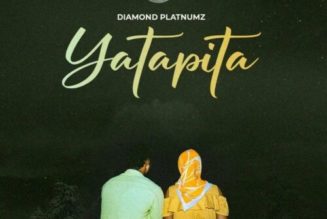3LAU‘s NFT marketplace Royal is on a mission to revolutionize the nostalgic pastime of collecting music.
After launching in the second half of 2021, the platform quickly amassed a $55 million war chest in a funding round led by Andreessen Horowitz. Since then, Royal has facilitated attention-grabbing NFT collections, including offerings from Diplo and Nas. Last month, Darya Pourshasb, former Director of Premium Content Strategy at Spotify, made the leap to join Royal’s leadership team with an eagerness to continue growing the brand’s partnerships within the artist community.
While the industry at-large appears to be lining up behind Royal, 3LAU remains laser-focused on illuminating the emotional and intrinsic value of music NFTs for consumers. Speaking on TechCrunch‘s “Chain Reaction” podcast, the DJ and cryptocurrency pundit says his personal barometer for determining what makes a good NFT project is to consider whether it incentivizes a digital behavior that similarly exists in the real world.
“I think the music example is specifically the most interesting, where collecting an actual audio file for thousands and thousands of dollars just doesn’t seem to make sense, because no one would do that in the real world,” 3LAU said.
Scroll to Continue
Recommended Articles
What does command such monetary value, however, is the song’s copyrights, which is the real medium that platforms like Royal are dealing in when fans purchase NFTs on the platform. The fractionalized ownership of the copyrights entitles the token holder to more than just a mere audio file. The owner enjoys the benefits of fractionalized ownership of the cash flows generated by the songs they own. Depending on how productive these assets are, the collectibles maintain a certain level of intrinsic value, justifying their ability to be traded or sold.
3LAU additionally cites a statistic that may come across as a surprise to the everyday listener: 84% of income generated from music is due to streaming revenue. Despite the fact that each stream generates slim fractions of a cent on major platforms, at the upper echelons of the industry, the take-home is actually quite lucrative. However, the lions share of these rewards typically sit with major labels and select middle-men who own the copyrights.
If the Web3 movement has its way, the proliferation of NFTs will instead allow for artists to retain their rights, maximize their earnings, and allow fans to share in their success while effectively bringing them closer to the music than ever before.
You can listen to the full “Chain Reaction” episode below.
 [flexi-common-toolbar] [flexi-form class=”flexi_form_style” title=”Submit to Flexi” name=”my_form” ajax=”true”][flexi-form-tag type=”post_title” class=”fl-input” title=”Title” value=”” required=”true”][flexi-form-tag type=”category” title=”Select category”][flexi-form-tag type=”tag” title=”Insert tag”][flexi-form-tag type=”article” class=”fl-textarea” title=”Description” ][flexi-form-tag type=”file” title=”Select file” required=”true”][flexi-form-tag type=”submit” name=”submit” value=”Submit Now”] [/flexi-form]
[flexi-common-toolbar] [flexi-form class=”flexi_form_style” title=”Submit to Flexi” name=”my_form” ajax=”true”][flexi-form-tag type=”post_title” class=”fl-input” title=”Title” value=”” required=”true”][flexi-form-tag type=”category” title=”Select category”][flexi-form-tag type=”tag” title=”Insert tag”][flexi-form-tag type=”article” class=”fl-textarea” title=”Description” ][flexi-form-tag type=”file” title=”Select file” required=”true”][flexi-form-tag type=”submit” name=”submit” value=”Submit Now”] [/flexi-form]











Tagged: 3lau, Blockchain, entertainment blog, GEAR + TECH, music blog, NFT, web3